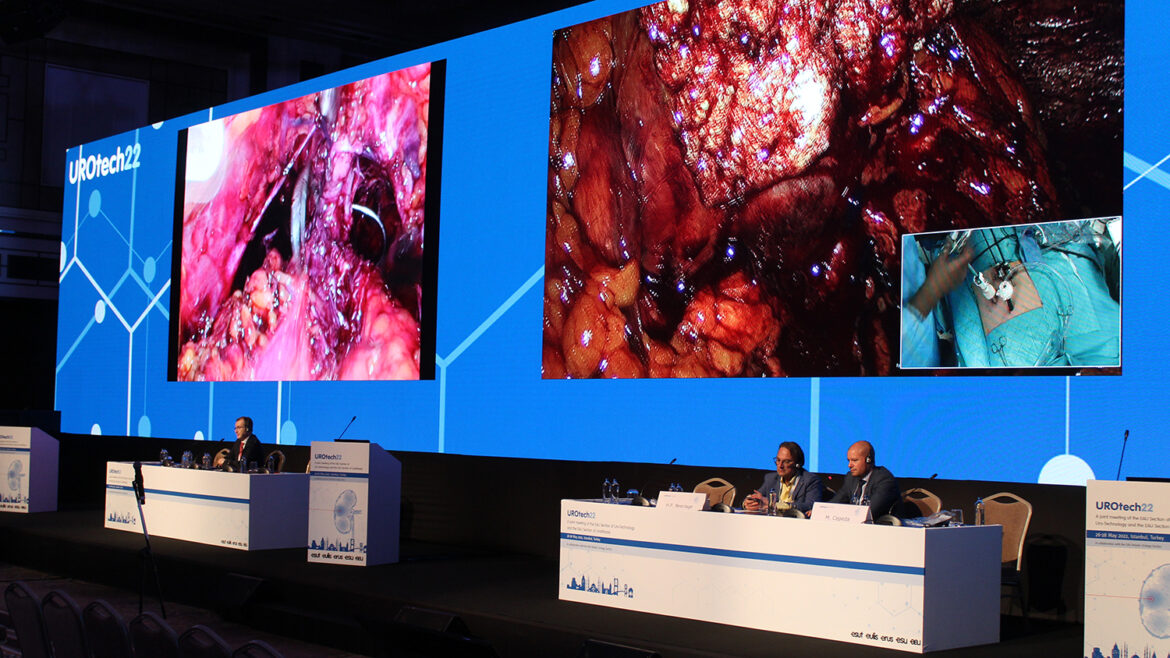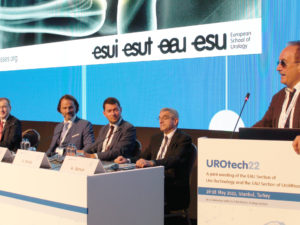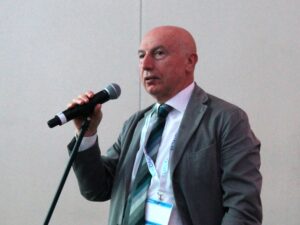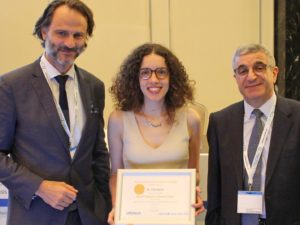In its first incarnation, UROtech was already a highly collaborative meeting: the EAU Sections of Uro-Technology and Urolithiasis (ESUT and EULIS) made up the most of the scientific programme, with extra expertise coming from the Robotic Section (ERUS).
For the 2024 edition in Vienna, the meeting is further expanded with contributions from the EAU Working Group on Paediatric Urology (EWPU). Prof. Mesrur Selçuk Silay (Istanbul, TR) is a paediatric urologist and the chair of the EWPU, and he is closely involved in the paediatric part of the UROtech24 scientific programme.
UROtech24 will take place in Austria’s capital on 25-27 January, 2024. The discounted late fee is available until 11 January.
Paediatrics: Technology and stones
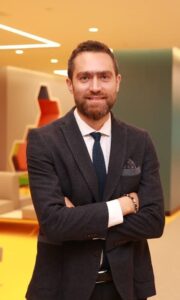
EWPU is the official body that represents paediatric urology within the EAU. It coordinates all paediatric activities within the EAU and collaborates with the European Society of Paediatric Urology and the European School of Urology when it comes to organising courses, webinars and other activities. It also works together with the Young Academic Urologists (YAU) to plan multi-centre trials, and in bringing together young urologists and experts.
Joining UROtech24 was a logical step, according to Prof. Silay: “New technology and new devices are always important for urology and urologists, but especially for paediatric urology. As paediatric surgeons we use those instruments and technology for children with different conditions. We didn’t hesitate to join this meeting!”
One of the main paediatric urology topics to be covered in Vienna is urinary stone disease:
“Currently, open surgery has become an exceedingly rare requirement for treating stone disease in the paediatric population. Urologists have many improved and ever-smaller technological devices available on the market. Those miniaturised instruments enable us to treat even the infant population in a minimally-invasive manner.”
“The major developments in this field are basically the use of the high-powered laser in the paediatric population. New strategies have been established for decreasing intrarenal pressure in children. Endoscopic combined intrarenal surgery has become feasible and the first reports have been published in the literature too. Decreasing radiation exposure for younger patients is also of utmost importance, and we will examine the current options in Vienna too.”
Scientific programme
UROtech24 will feature four live surgery sessions, each featuring multiple procedures. The programme is designed to highlight various approaches available to the urologist in a comparative fashion. The programme is augmented by several plenary sessions devoted to specific topics or meetings of certain groups. Abstract presentations will take place in five different sessions. All facets of uro-technology will be present, from imaging to robotics and innovations like artificial intelligence (AI).
Prof. Silay says paediatric urologists would be well-served by attending the meeting, as every newly developed technology will ultimately benefit their young patients. The sessions on urinary stones for instance, will feature case discussions of miniaturised instruments, as used in paediatric cases.
“In general, I think AI is going to be a game-changer in urology and already in the near future this is going to change our clinical practice as well. I look forward to learning about it in Vienna. There are also tremendous developments in imaging techniques, many of which will be demonstrated and examined at UROtech24.”
“Thirdly, robotically-assisted surgery is a field that is constantly evolving, especially with many new manufacturers entering the market. It is becoming more suitable for children as well. Increasingly miniaturised instruments are of course always something a paediatric urologist will follow with great interest.”

